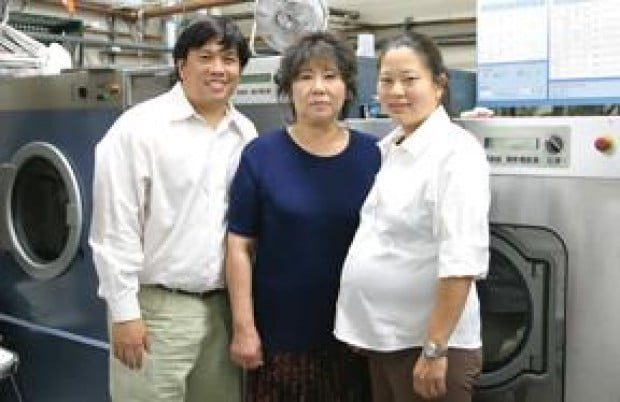
Dry cleaners do not have to complete the state-mandated ban on perchloroethylene until 2023, but in Malibu the transition has already begun.
By Ruth Lundi / Special to The Malibu Times
Two Malibu dry cleaners did not have to make adjustments in January when the California Air Resources Board approved a phase-out of the chemical perchloroethylene, or perc, by 2023. This is because they had already made the transition to cleaner methods of cleaning clothes.
Mina and Ryan Mallari said they converted Colony Cleaners in Cross Creek Plaza to 100 percent wet cleaning a year ago, due mainly to the green component.
“Wet cleaning… cleans, whitens and preserves your clothes in a manner that is extremely safe for the employees, customers and… the environment,” Mina Mallari said. “So far, there are no fabrics we have been unable to clean with this process. Our customers are very happy with their clothes.”
Ryan Mallari added, “Sometimes people are nervous about going against the cleaning instructions when the label says ‘dry clean only.’ But that’s where our experience with fabrics and dyes is valuable. Malibu is special. The quality of the clothing we receive is very unusual compared to other stores.”
In the year since the conversion, Ryan Mallari said, no fabric has ever been damaged.
Peter Sinsheimer, director of the Pollution Prevention Center at Occidental College’s Urban and Environmental Policy Institute, calls the Mallaris “real heroes.”
“They are light years ahead of the rest,” Sinsheimer said.
California is the first state in the nation to ban Perc, he said, and the Los Angeles region is the leader. Of the 2,500 cleaners in the Los Angeles region, 50 are 100 percent wet cleaners. There are only about 20 in the rest of the country, and only 20 more in the rest of the world. Sinsheimer said that wet cleaning is the best of the alternative methods because it is noncombustible, produces no hazardous waste, is energy efficient and is zero-emissions technology.
Suzy Kim, owner of Ogden’s Cleaners in the Malibu Colony Plaza, says she converted to a hydrocarbon dry cleaning system in addition to wet cleaning because she doesn’t think other systems clean as well.
“I would say almost 70 percent of garments cannot be wet cleaned,” Kim said. “When a garment comes in, we read the labels or test to see if it is OK for wet cleaning. We find only about 20 to 30 percent of garments are appropriate for wet cleaning.”
When Ogden’s stopped using perc in 2005, Kim received the “Sustainable 41 Award” from then-Assemblymember Fran Pavley for “providing greener options” to the citizens of Malibu.
Kim, who has been in the cleaning business since 1978, said that texture, shrinkage and color are main problems with wet cleaning.
“First we do dry cleaning,” Kim said. “If the stain doesn’t come out, then we try wet cleaning. But then we have to do the dry cleaning again to bring back the color.”
Kim said she doesn’t think wet cleaning does the job all of the time. “We would like to make sure the garment is clean enough for the customer,” she said.
Although their labor costs have increased “considerably” due to the increased time spent with each garment, the Malliaris received $20,000 in incentives from the state of California and the South Coast Air Quality Management District toward the cost of new equipment. Ryan Mallari said even taking increased costs into consideration, they were “all for it.” He said they redid the whole shop to accommodate the new system.
Kim, who also received financial incentives, agrees.
“We are no longer a one-hour dry cleaner because it takes longer,” she said. “Also, we switch our machinery every seven years because technology improves. I’m very proud of using high-quality detergent and clean solvent. Also, the maintenance of my store is very high and I’m very proud of that. “
Mina Mallari said, “We want to be proud of what we do.” So they are also committed to being as green as possible. The delivery vehicles are hybrids. They use biodegradable plastic covering. They recycle hangers, which the customer is allowed to return. They also offer a “no paper” option.
The Mallaris will soon be taking over the shop from Mina Mallari’s mother, Young Baik. Although she now is in favor of the process, “at first I was extremely nervous about it,” Baik said.
The Mallaris don’t want people to be afraid of water.
“It’s not the water that does damage [to fabric],” Mina Mallari said. “It’s a lack of knowledge and experience.”
Her husband added, “The real professionals such as ourselves are going to look for very experienced people who get into the process and figure it out,” He noted that the family has been in the cleaning business for 30 years.
Kim echoed that sentiment. “You have to give your garment to someone you can trust-someone with experience.”


